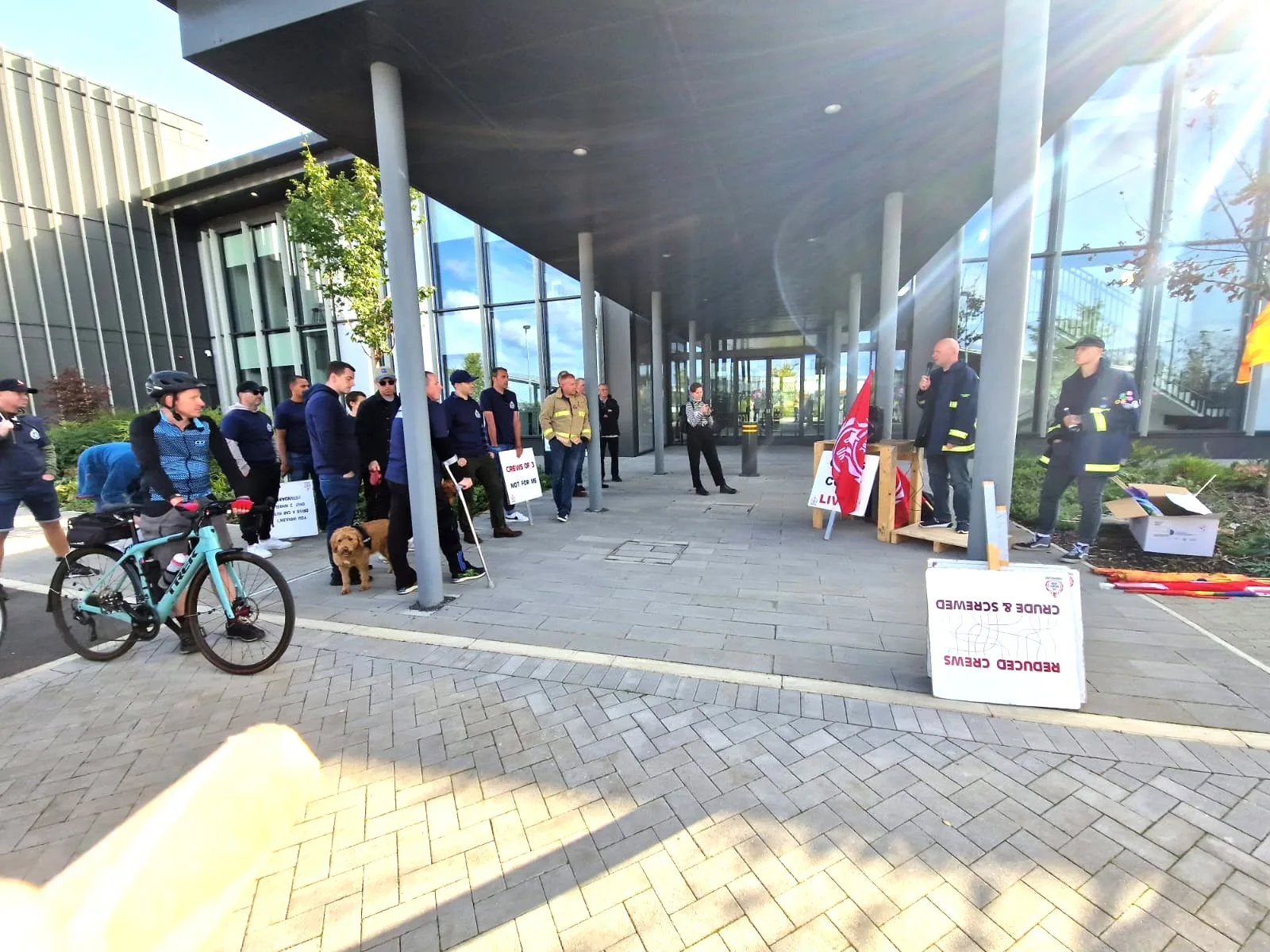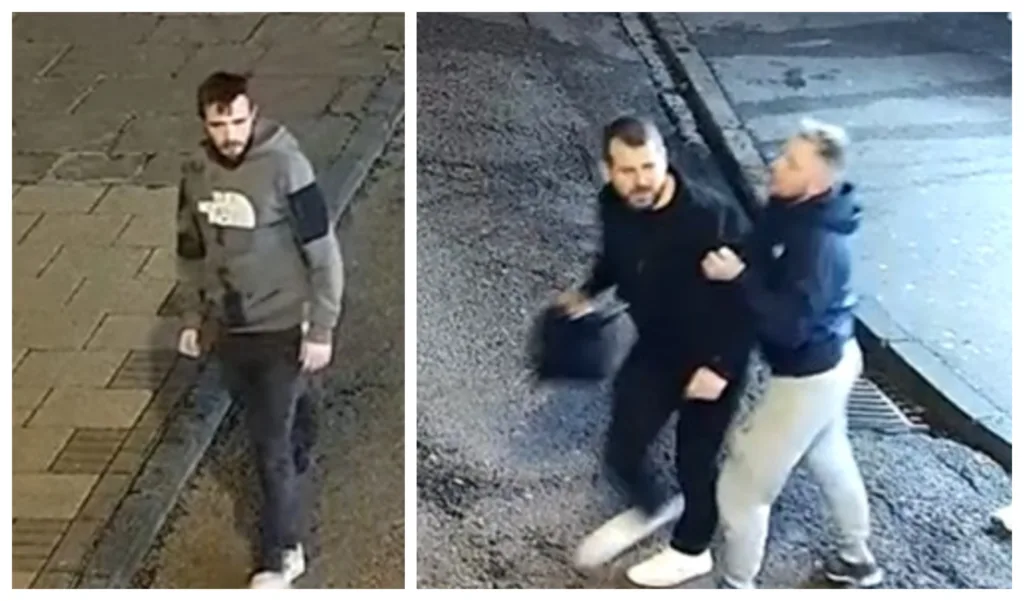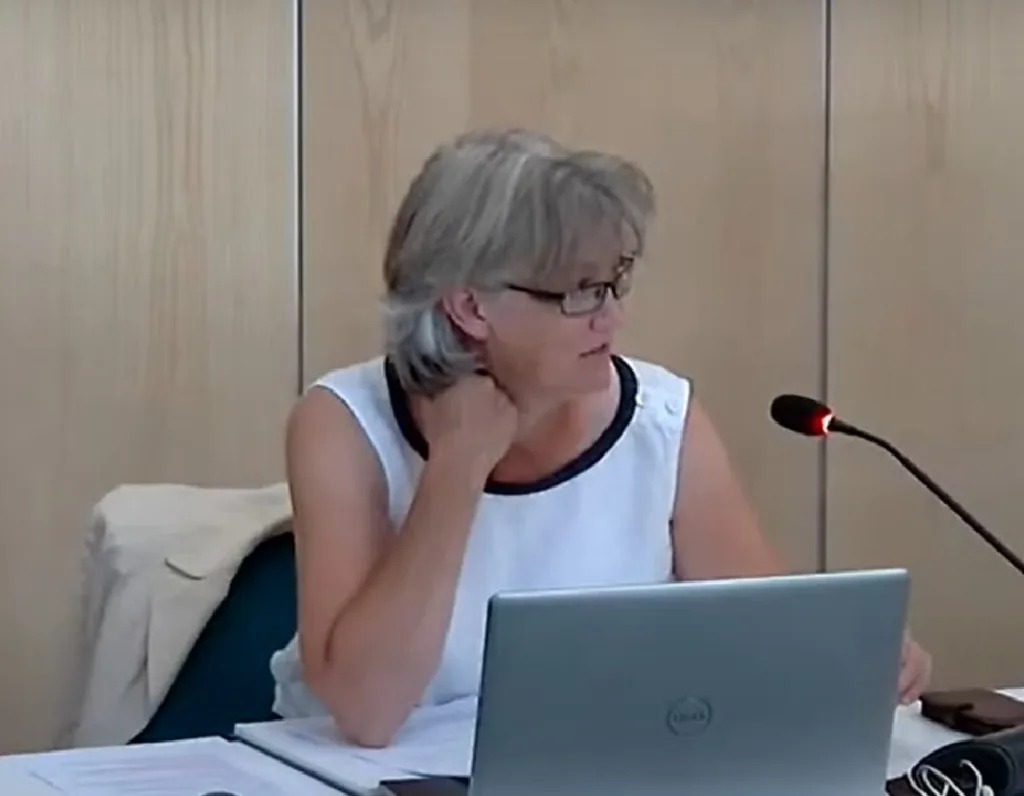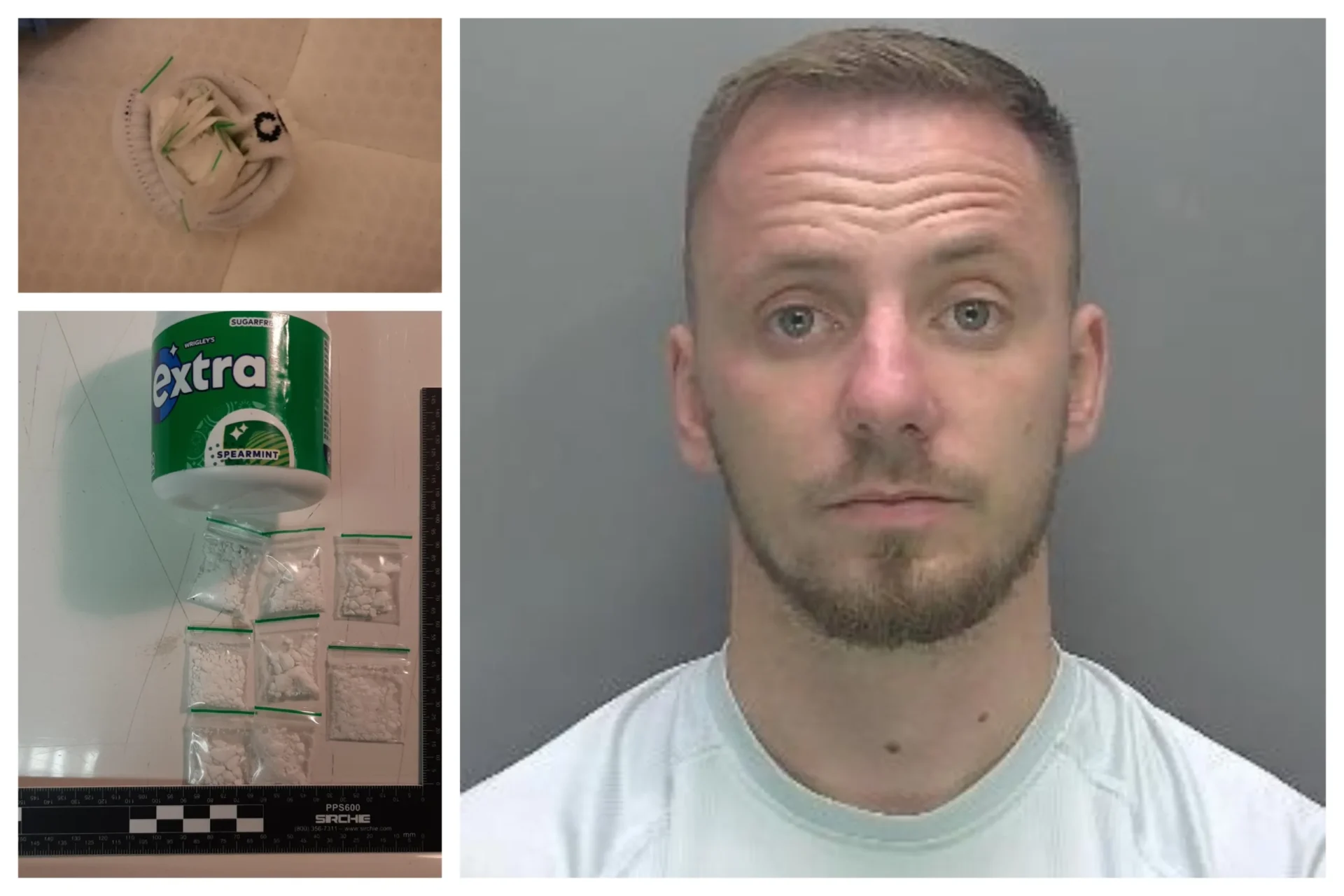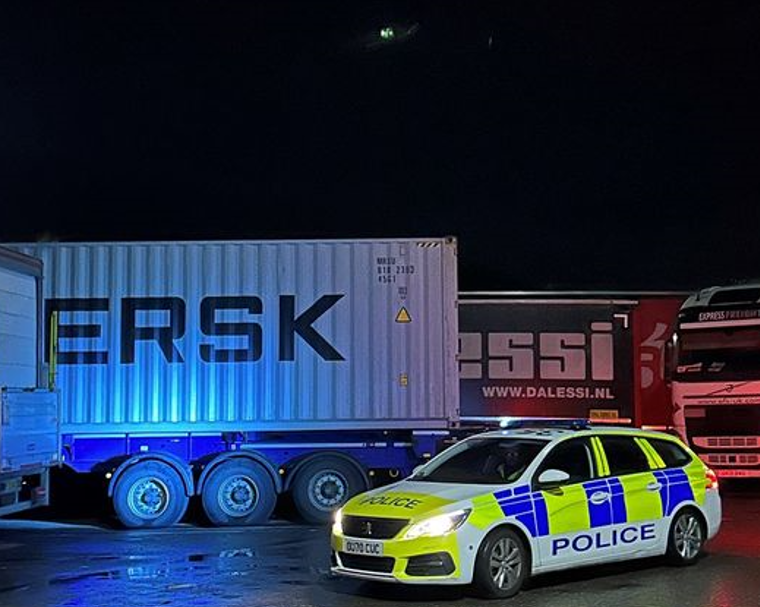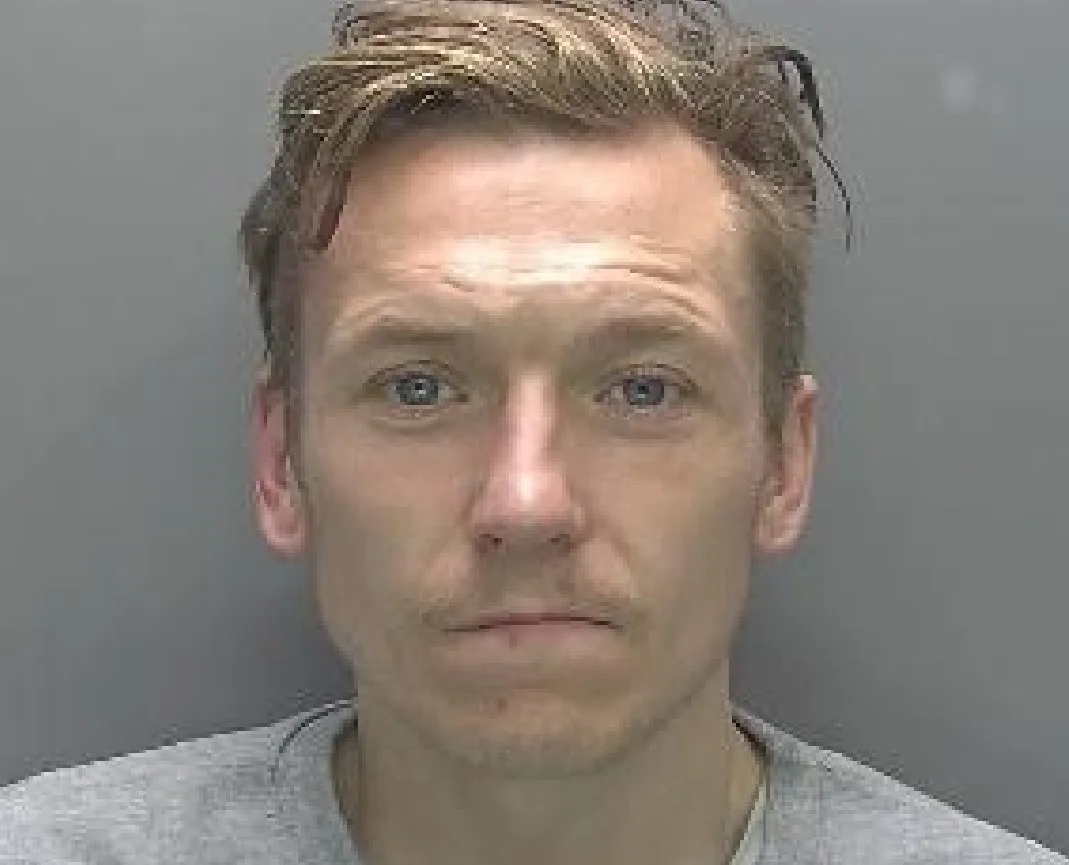Firefighters staged a protest outside New Shire Hall, Alconbury, against cutting crew numbers from five to three. The Fire Brigades Union (FBU) wanted their concerns to be seen by those attending the overview and scrutiny committee of Cambridgeshire Fire Authority.
“Today Cambs FBU members past and present turned out to support the demo opposing Crew Deficient Mobilising,” said a union official.
“We had support from FBU Midlands (Region 6), Beds FBU, Cambridgeshire County branch of Unison as well as members of the public and councillors.
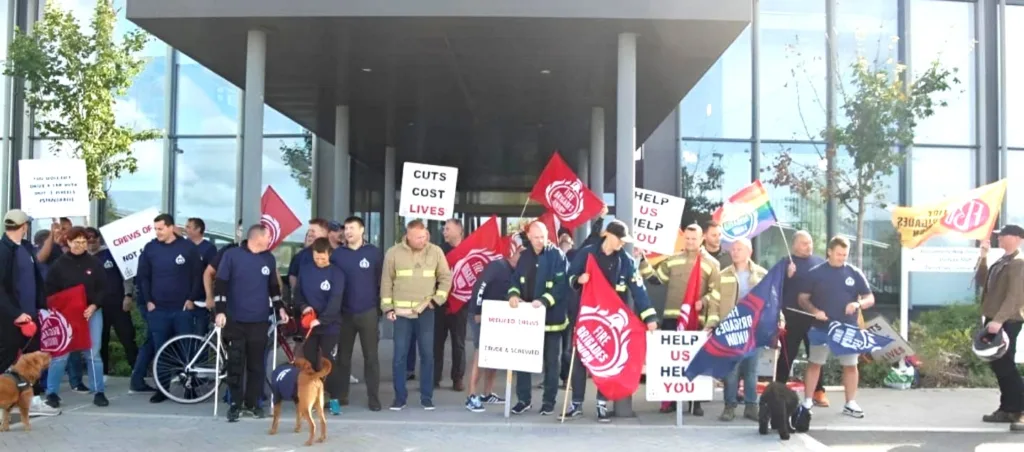
“We move onto the next phase of our campaign; keep a look out for further updates.”
Almost 90 per cent of on-call firefighters who are union members signed a letter opposing the decision by Cambridgeshire Fire and Rescue to cut their numbers to three per crew when attending incidents.
“Since January 1st, 2023, Cambridgeshire Fire and Rescue Service (CFRS) has cut the number of on-call firefighters attending incidents in Cambridgeshire to three per crew,” said a union spokesperson.
“A minimum number of five firefighters are recommended to respond to incidents where lives are at risk.”
https://twitter.com/FBUCambs/status/1709641596164071863
Callum Hodgkin, FBU organiser, told the protest that “with a crew of three, you aren’t equipped safely tackle a serious incident like a house fire – you must wait for another crew to arrive.
“Firefighters in these crews face an impossible choice: wait outside a burning house or risk their jobs and lives by going in.
“Sooner or later, this policy will end in tragedy.”
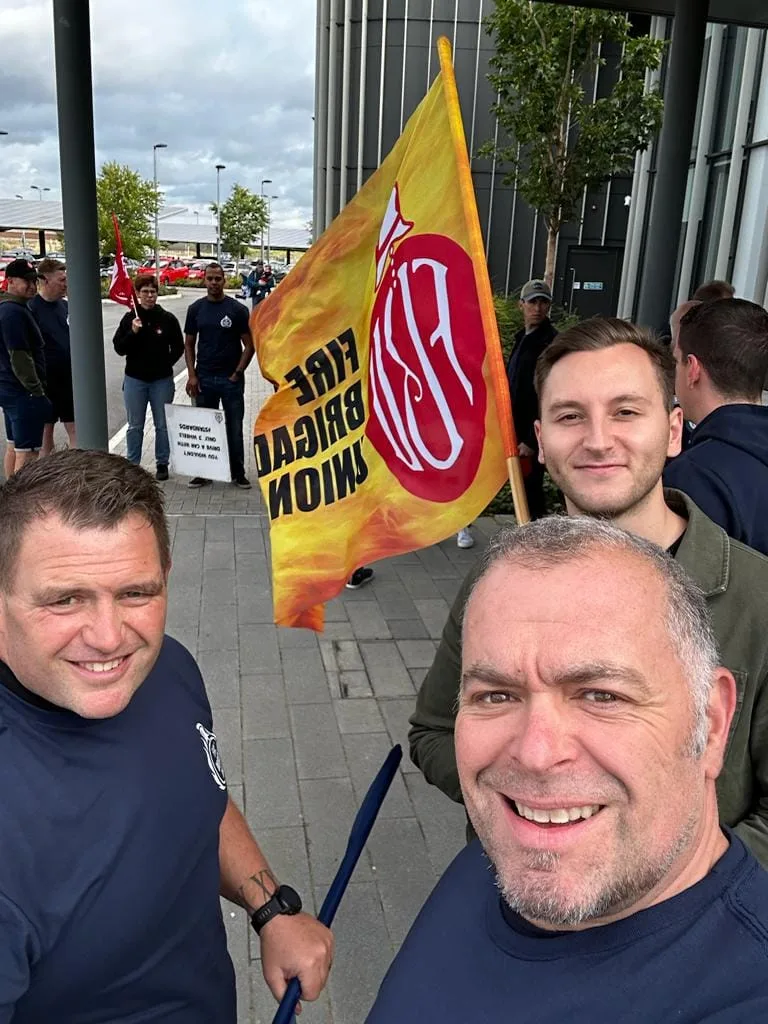
Cambridgeshire Fire and Rescue assistant fire chief Jon Anderson told the BBC that recruitment challenges had forced the change, and they were not ignoring the concerns raised by the FBU.
Given the choice, they would send out four or five on-call firefighters in one crew.
“We are trying very hard to get more on-call firefighters for the region. Although this is a national issue,” he said.
Chief fire officer statement
A statement earlier from chief fire officer Chris Strickland denied they were cutting crew levels to three and “we will always strive to have at least four and ideally five on a fire engine.
“However, we often have three firefighters available at on-call stations who can get to an incident in in their local town or village quicker than the next nearest fire engine.
“In these situations, we are now allowing that fire engine to attend with a crew of three, backed up by the normal number of fire engines we would send to that incident.
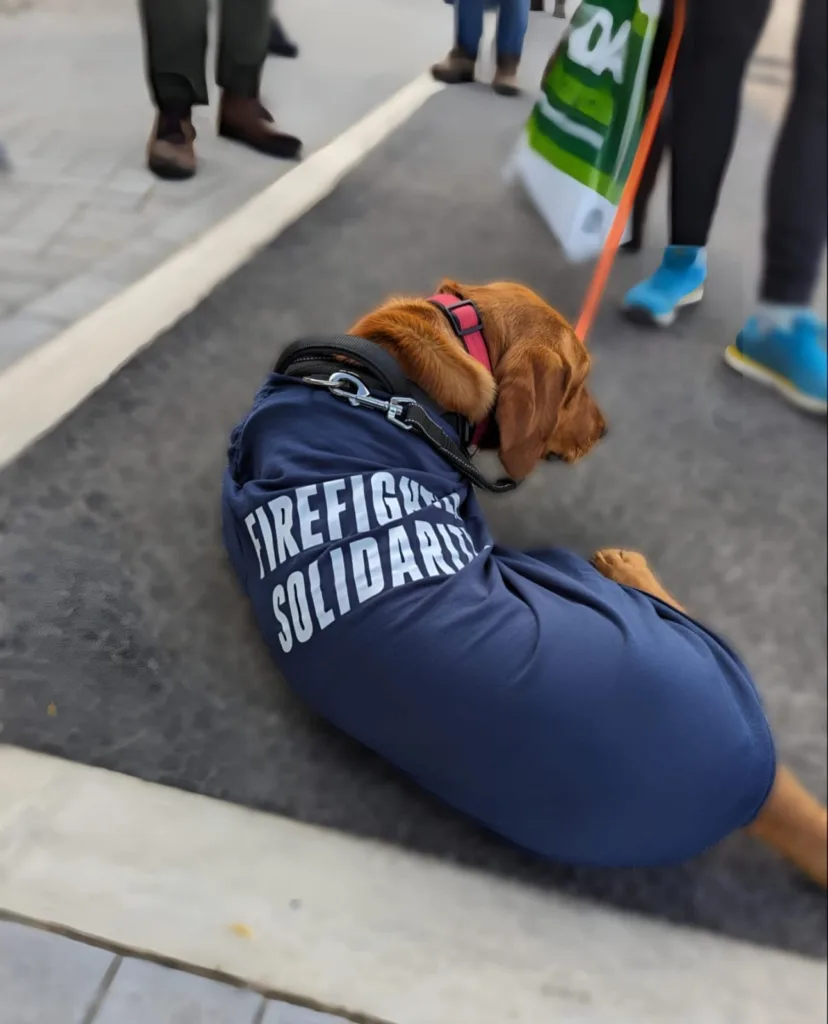
“A crew of three on a fire engine is able to deal with many incidents quickly and safely, improving the service being provided to many rural areas.”
The FBU says: “A deficient crew is an insufficient crew. Three riders cannot affect a rescue, cannot wear BA, and cannot put Safe Systems of Work (SSoW) in place. This places themselves and the public in increased danger and is unacceptable.
“A crew of three firefighters in an appliance (fire engine) means there is one driver, one officer overseeing operations, and one crew member,” said a union spokesperson.
“Firefighters are trained as crews of four or five, with roles assigned within these larger teams.
“CFRS argues that smaller crews will mean that fire engines arrive at incidents ‘several minutes faster’. However, there is no evidence that this reduces response times since a crew of three must wait for additional crews to arrive to tackle a serious incident.”
Every second counts says FBU
Mark Harriss, FBU Cambridgeshire brigade secretary said: “Every second counts in an emergency, and fires can escalate quickly.
“Cambridgeshire Fire and Rescue Service is putting lives at risk by sending out crews who are unable to rescue people safely. If your house is on fire, you expect a fire engine to be able to help. You don’t expect three firefighters to arrive and wait for back-up.”
“The service is cutting our crews because we’re facing a crisis in recruitment and retention. Making the job far more dangerous and stressful will only make this worse. Fire service employers must put a stop to this dangerous practice and staff our service properly.”
“We are proud to serve our communities and feel a moral duty to save lives. Sooner or later, this policy will end in tragedy. No firefighter should ever be put in this position.”


